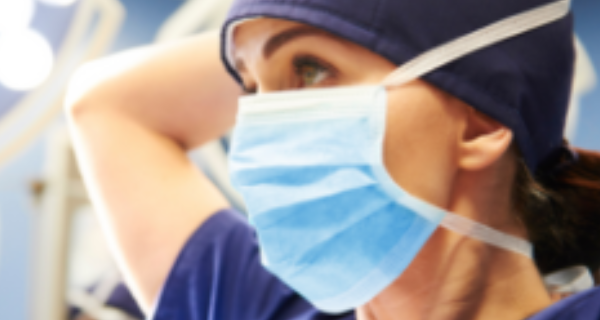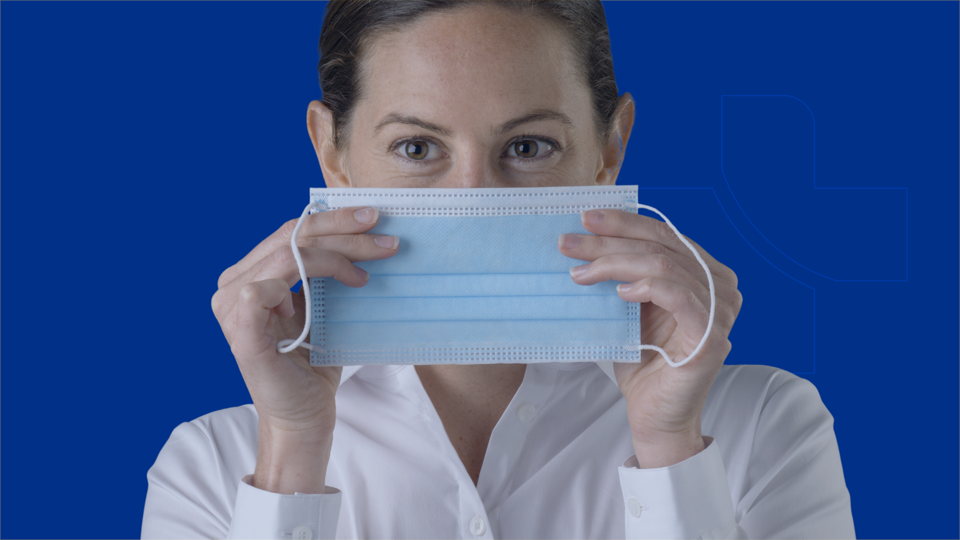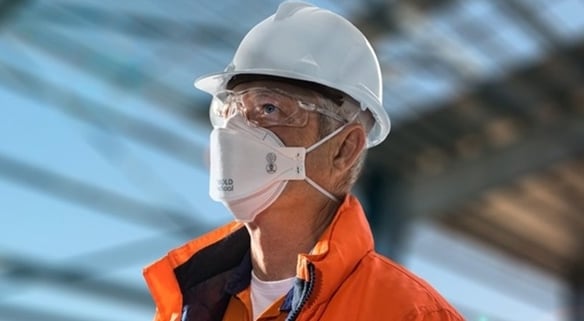Choosing the Right Mask: When to Use Tri-Panel N95 Respirators
At Detmold Medical, we manufacture a range of high-quality single-use masks and respirators. Our masks have been designed in collaboration with healthcare and industry experts to ensure your RPE is of highest quality, comfortable, easy to breathe through, and meets relevant Australian and International Standards for face mask performance.
Our Tri-Panel style respirator masks are a new addition to the selection of respirators we produce locally, in South Australia. Read on to learn more about our N95 respirators and when to use them.



What are N95 respirators?
The Detmold Medical N95 respirators are a single-use, non-sterile mask, designed and tested to filter out in excess of 95% of non-oil-based airborne particulates and bacteria. Our Surgical and Medical Tri-Panel styles are based on NIOSH criteria of 42 CFR Part 84, Subpart K and AS 4381:2015 (Surgical) or AS/NZS 1716:2012 (Medical).
The Tri-panel design expands into a boat-shaped respirator mask that comfortably fits a range of face shapes, does not collapse onto the face but allows for facial movements without compromising the mask's facial seal and performance. One size fits most face shapes and sizes and can easily be worn in combination with eyewear.
Recommended use for N95 respirators
While an N95 respirator is generally recommended for use in healthcare and hospital settings, N95 respirator masks can be used in a variety of demanding environments providing effective protection against everything from viruses and allergens to dust, smoke, and a number of hazardous particles.
Here are a few scenarios where the N95 respirator mask is one of the best options for the wearer.


Hospital settings
The N95 L3 Surgical Tri-Panel respirator mask is ideal for use in operating theatres where the wearer is at risk of blood and fluid splash. The external hydrophobic layer helps to repel blood, fluids and external bacteria. The outer middle and middle filtration layers provide additional protection to capture external particles.
Thanks to the filtration capacity of the N95 P2 Medical Tri-Panel respirator masks, they are recommended for use in healthcare settings where the wearer is in close contact with infectious individuals, like emergency departments.
Single-Use Respirators are designed for use in professional environments where Fit Testing and fit-checking procedures are in place.
Aged-care Environments
Residents in aged-care facilities are often more vulnerable to the effects of viruses and infectious diseases than the general public. Viruses, including Influenza and COVID-19, can spread quickly in aged-care facilities, so it is important to take preventative measures to minimise the risk of outbreaks.
In aged-care settings, workers have a duty of care to protect vulnerable residents. The use of N95 respirators can be an important measure to protect both residents and the healthcare workers themselves from respiratory infections and airborne viruses. Visitors to aged-care facilities should also be encouraged to wear surgical masks or N95 respirators to reduce the risk of infection.
While there are currently no Public Health Directions requiring the use of masks or respirators, they are still recommended in high-risk settings including aged-care facilities.
Influenza Protection & Infection Control
Since the mask mandates during COVID-19 pandemic were lifted, flu cases and other respiratory illnesses have been on the increase. N95 respirators used properly can offer an effective form of protection against airborne viruses, like influenza or the common cold. Disposable Respirators protect but can also help curb the spread of diseases and provide effective infection control by preventing germs from spreading at their source.
Allergy and Pollution Protection
N95 respirator masks can also provide protection and relief from the symptoms of allergies. N95 respirator masks are designed to filter out at least 95% of airborne contaminants. Thanks to the level of filtration efficiency, N95 respirators can help filter out airborne allergens and particles, like pollen, dust mites, pet dander and mold spores. By preventing the particles from entering the respiratory system in the first place, N95 masks can help minimise allergic reactions. Similarly, N95 respirators can also offer protection in environments with high levels of pollution by filtering pollutants from the air.
Dust
Some respirator masks, including N95 respirators, offer protection against inhaling harmful dust particles, fumes, vapours, gases and other hazardous chemicals.

Our N95 respirator masks have been designed and tested in line with the performance requirements of a Class P2 respirator. P2 respirators filter both mechanically and thermally generated particles that result from processes like:
- Grinding,
- Sanding,
- Drilling,
- Cutting,
- Sawing,
- Welding, and
- Fertilising.
Bushfires
While N95 respirator masks can filter out nuisance dust, they are also able to protect wearers from sub-micron thermally generated particles that are present in bushfire smoke. With this in mind, N95 respirators are often recommended for people returning to fire-damaged homes in the wake of bushfires.
Bushfire smoke often leads to poor air quality. The particles can irritate the eyes, nose, throat, and lungs, not to mention they can aggravate existing respiratory conditions, like chronic bronchitis, emphysema and asthma, and/or heart conditions. N95 respirators can be used alongside other preventative measures to protect against exposure to bushfire smoke.
To learn more about our N95 respirator masks or explore the rest of the mask and respirators including Tri-Panel styles, head to the Detmold Medical website.




